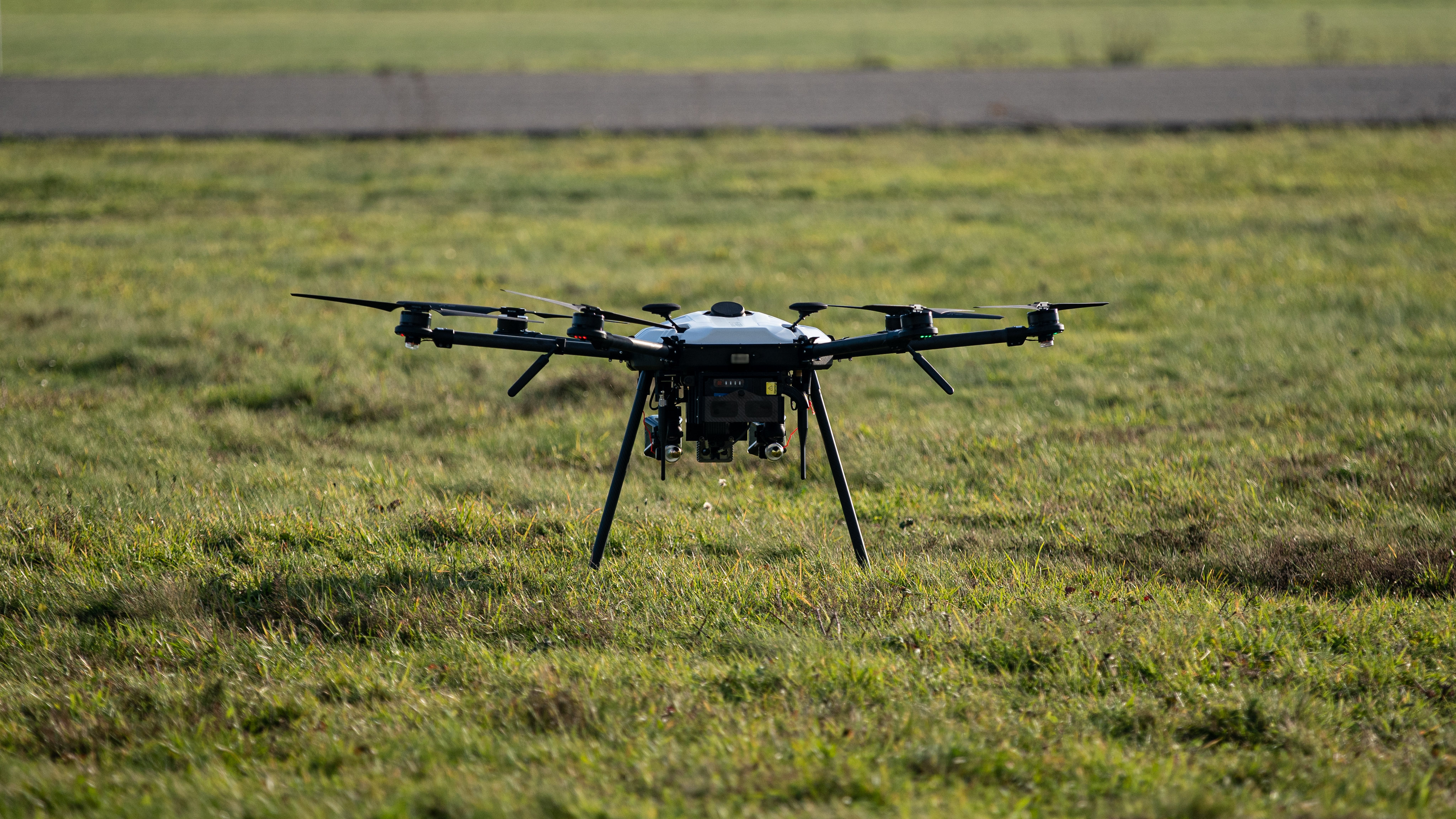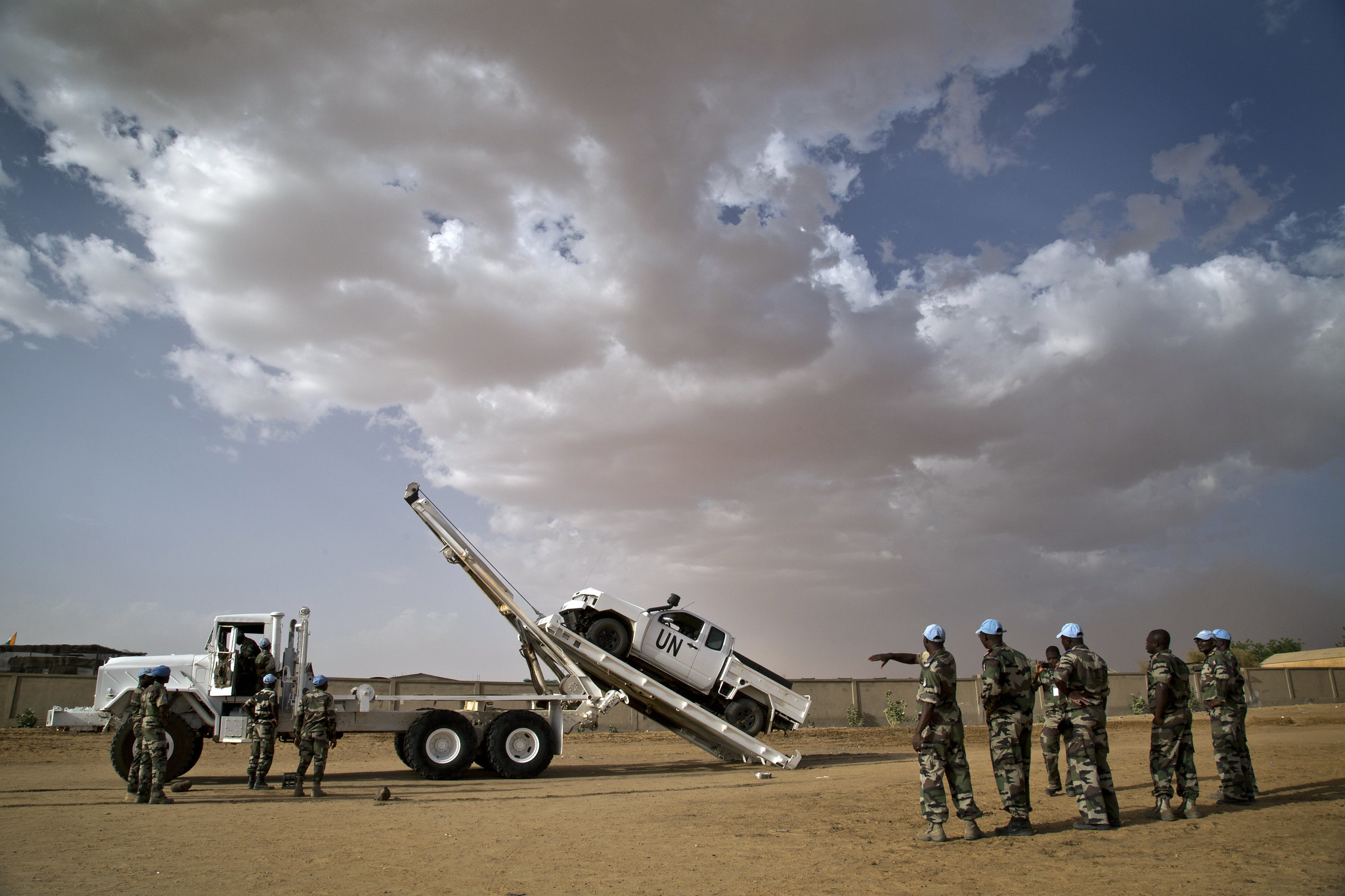The US Marine’s new strategy document leaves out any mention of Africa, while this signals a less interventionist approach by the US military it threatens to leave troops under prepared writes Glen Segell.
The mantra ‘African solutions for African problems’ holds sway over the new United States Marine Corps’ Force Design 2030. The document, known as FD2030, is strategic guidance for a modernisation program to ensure that the Marines remain relevant, to American foreign and defence policy. There is no indication that it means relevant to the needs of any other country or population in which the Marines might be deployed.
Significantly, FD2030 does not mention Africa even once. Africa hasn’t been a priority of either presidents Donald Trump or Joe Biden who have both been focused on the Asia-Pacific. From an African perspective, this might invoke mixed emotions. While the US Marines might well ask if this means that they will not be deployed to Africa, African leaders might well ask if they need help then is Washington going to respond?
The omission of Africa in FD2030 is a notable change given that the US military has been involved in Africa for more than two centuries. Beginning with the Barbary Wars of 1801-05 and 1815, continuing to the World War II North Africa campaign and into the present day. However, many of the recent American military deployments in Africa have not been overtly successful for either the US or for the African states in which they intervened. Perhaps the US is cutting its losses, and that is why Africa doesn’t feature in the FD2030.
Given the US’s presence in Africa, to ignore the continent completely in such an important document seems to be a massive oversight that sets the Marines up for failure in the future. Since the 90s, US forces have been deployed in Somalia (1992), Rwanda (1994), Liberia (1996), Central African Republic (1996), Zaire (1996), Congo and Gabon (1997), Sierra Leone (1997), Guinea-Bissau (1998), Kenya and Tanzania (1998), Kenya (1999), Cote d’Ivoire. (2002), Djibouti (2023), Ethiopia, Eritrea (2004), Uganda (2011), and Libya (2011). This list does not include places with permanent US military bases.
To be sure should FD2030 be modified to include Africa, but an emphasis on local leadership and the local population needs to be a priority. There needs to be an evaluation of what the Marines can do to tackle the root causes that lead to their eventual deployment. Without this planning, you are left with a deployment in the immediacy of a crisis followed by a premature withdrawal due to operational complications or failures.
Across Africa, authoritarian rule, poverty, and environmental factors are intertwined with violent fundamentalist organisations and criminal networks to create areas of Gray Zone conflict (which falls short of the traditional view of army versus army conflict). Al Qaeda, The Islamic State, and Hezbollah have branches in Somalia, the Sahel, the Maghreb, and Lake Chad. In Congo and Mozambique, the Islamic State has been engaged in various forms of illicit organised crime. There is also great power competition with trade and commerce between the US, Europe, China, Russia, Korea, Iran, and most recently Turkey which has established joint Business Councils with 45 African countries.
All such activities and indeed the multitude of state and non-state actors are a challenge to American interests and paint a compelling picture as to why Africa should be included in the FD2030.
Advice from Africa to Washington
As a strategic guidance document, the FD2030 should include lessons learned from the past, both failures and successes, and threat analysis on great power competition, violent and extremist organisations, and the Gray Zone. This should then be combined with recommendations for tactics such as hybrid warfare, international partnerships, and the roles of intelligence to deal with these issues.
Lessons from the past could include the Marine’s deployment to Somalia (1992-1994) which was similar to its deployment to Lebanon (1982-1983). In both instances, the Marines withdrew after facing unacceptable causalities. The guidance is that a large force deployment into violent urban areas where there is no local stable governance could better be achieved by shorter deployment and precision strikes.
Examining the experience of US allies is also a valuable tool. France has launched expeditionary missions in the Sahel and Chad. A common element of all these is that a lack of sustainable stable local governance coupled with the inability of African regional forces to support them. Instead, only small forces should only be deployed for short precision missions. This has also been the conclusion drawn by local failures for example the Economic Community of West African States (ECOWAS) and the G5 Sahel.
Whilst learning from past failures and the experiences of allies it is also important to learn from where the US has had success post-Cold War and post 9/11. This has been when working with local partners such as with the People’s Protection Units in Syria. Working with local African partners would thus seem imperative.
New FD2030 guidelines and standards with Africa specifically in mind would clarify and define the necessary military and non-military tasks. That includes working with other American forces such as the United States Africa Command (AFRICOM) which engages in training and education, humanitarian assistance, medical readiness, development strategies, and interception of illicit activities.
Furthermore, with a restructured FD2030 force design the Marines could still be deployed in its traditional role offshore as a formidable deterrent force and as a force multiplier partner with the US Navy, African states, and European allies.
To what end
Just as relevant as tactics and planning is identifying the adversary and its capability. Such intelligence gathering can be classified into two categories: puzzles and mysteries. Puzzles have a definite answer and intelligence is needed to solve them. Mysteries have no definite answer.
The strategic guidance of the FD2030 should note this as a limitation in scope, force size and mission duration for and deployment of the Marines. This was the case with Somalia and Libya which were dependent on political solutions rather than military successes. African leaders are best suited to determine when, where and for how long Marines are best suited to tackle the root causes of issues in their own countries and now is the best time for them to voice this, when FD2030 is being re-written.
To be effective FD2030 needs to address the specifics of Africa. Without this the US Marine Corps will be unable to effectively engage should it be deployed on the African continent.
Photo credit: Mobilus In Mobili used with permission CC BY-SA 2.0






Good article but absolutely the wrong conclusion about the Marine Corps withdrawing from Somalia and Lebanon after “…facing unacceptable casualties.” The withdrawal had nothing to do with what the Marine Corps wanted! Rather it was a decision by the President to pull out. If he – and his successors – had wanted the Marines to stay, then we would have stayed! Casualties are always regrettable, but they do not drive a Commanders focus on accomplishing his mission.